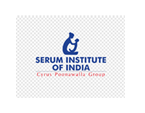Integrated M.Sc. Biotechnology
Programme Overview
A five-year Integrated M.Sc.biotechnology programme at MIT World Peace University (MIT-WPU) is specifically designed to foster the next generation of biotechnologists that are well-equipped with theoretical and practical knowledge.
The programme is characterised by a hands-on learning process. Through laboratory work, field studies, and research internships, the students develop practical skills and prepare them to be equipped to meet the challenges of the biotechnology industry. Such an approach to learning solidifies theoretical knowledge and equips students with the competencies required for successful careers.
The graduates of Integrated M.Sc. Biotechnology programme would come out as rounded professionals equipped to handle real-world biotechnology challenges . The curriculum equips students for both higher studies and for lucrative careers in this sector.
With a challenging curriculum, practical training, and research opportunities, this programme represents an ideal choice for ambitious biotechnologists who wish to take their passion for biotechnology to meaningful ends.
Major Tracks
- Tissue engineering and Stem Cell Technology
- Clinical Research and Pharmacovigilance
- Bioinformatics and Data Analytics
- Agriculture and Food Technology
Duration & Fees
Duration
5 Years
Applications Open for 2026
Fee Per Year
₹ 150,000
Scholarship
| Scholarship for AY 2026-27 | MIT-WPU CET CBT Score |
|---|---|
|
Dr. Vishwanath Karad Scholarship |
88 & Above |
|
MIT-WPU Scholarship I |
85 & Above |
|
MIT-WPU Scholarship II |
80 & Above |
Note: Scholarships will be awarded based on the MIT-WPU CET 2026 Computer-Based Test (CBT) score.
Terms & Conditions Apply:
- All Scholarships are awarded on a First Come First Serve basis. All Scholarships are awarded as fee adjustments.
- To continue the scholarship for the entire duration of the programme, a minimum level of the academic score has to be maintained at an 8 CGPA across all semesters, attendance is to be maintained at a minimum of 80 percent, with no live backlogs in any subject/programme and no semester break, and there should be no disciplinary action against the student.
For more detailed information visit our website: https://mitwpu.edu.in/scholarships
Eligibility
Minimum 50% aggregate marks in Class 10+2/ HSC or its equivalent examination in science stream with English subject (Minimum 45% aggregate marks for candidates belonging to the Reserved Category from Maharashtra State).
OR
Minimum 60% aggregate marks in any 3 years Pharmacy Diploma from State Government approved Institution/ board.
Selection Process
Admission will be based on the MIT-WPU CET 2026 Entrance Examination and the Personal Interaction (PI) score, conducted by the University as per the prescribed schedule.
Programme Highlights
- Industry-aligned syllabus developed in collaboration with biotechnology leaders and research institutions
- Case studies-based pedagogies to enhance understanding of real-world application
- Guest lectures, seminars, and workshops by blockchain experts and industry leaders from multinational companies
- Core subjects in biochemistry, molecular biology, microbiology, immunology, and genetics with progressive advancement
- Advanced modules in recombinant DNA technology, protein engineering, and bioprocess development
- Interdisciplinary curriculum integrating biotechnology with artificial intelligence and machine learning
- Specialised electives in nanobiotechnology, stem cell research, agricultural biotechnology, and biopharmaceuticals
- 6-month full time industry internship with reputed MNCs
- Personalised mentorship from faculty and industry professionals throughout the academic journey
| Semester | Course Name/Course Title | Course Type | Total Credits |
|
I |
University Core |
Effective Communication |
1 |
|
I |
University Core |
Critical Thinking |
1 |
|
I |
University Core |
Environment and Sustainability |
1 |
|
I |
University Core |
Foundations of Peace |
2 |
|
I |
University Core |
Yoga - I |
1 |
|
I |
University Core |
SLDP |
1 |
|
I |
Programme Foundation |
Biochemistry and Metabolism |
3 |
|
I |
Programme Foundation |
Fundamentals of Cell & Molecular Biology |
3 |
|
I |
Programme Foundation |
Biostatistics |
3 |
|
I |
Programme Foundation |
Microbiology |
3 |
|
I |
Programme Foundation |
Integrated Laboratory - 01 |
2 |
| Semester | Course Name/Course Title | Course Type | Total Credits |
|
II |
University Core |
Advanced Excel |
1 |
|
II |
University Core |
Financial Literacy |
1 |
|
II |
University Core |
Yoga - II |
1 |
|
II |
University Core |
Co-creation |
1 |
|
II |
University Core |
Indian Constitution |
1 |
|
II |
University Core |
IKS (General) |
2 |
|
II |
University Core |
Sports |
1 |
|
II |
Programme Foundation |
Genetics |
2 |
|
II |
Programme Foundation |
Bioinformatics |
3 |
|
II |
Programme Foundation |
Recombinant DNA Technology |
2 |
|
II |
Programme Foundation |
Immunology |
2 |
|
II |
Programme Foundation |
Bioanalytical Techniques |
3 |
|
II |
Programme Foundation |
Integrated Laboratory – 02 |
2 |
| Semester | Course Name/Course Title | Course Type | Total Credits |
|
III |
University Core |
Research Innovation Design Entrepreneurship (RIDE) |
1 |
|
III |
University Core |
Spiritual & Cultural Heritage; Indian Experience |
2 |
|
III |
University Electives |
UE - I |
3 |
|
III |
University Electives |
UE-II |
3 |
|
III |
Programme Capstone Project/Problem Based Learning/Seminar and Internships |
Project Based Learning - I |
1 |
|
III |
Programme Electives |
Programme Elective |
4 |
|
III |
Programme Foundation |
Computational Biology |
2 |
|
III |
Programme Foundation |
Plant and Animal Biotechnology |
2 |
|
III |
Programme Major |
Bioprocess Technology |
2 |
|
III |
Programme Capstone Project/Problem Based Learning/Seminar and Internships |
Integrated Laboratory - 03 |
2 |
| Semester | Course Name/Course Title | Course Type | Total Credits |
|
IV |
University Electives |
UE-III |
3 |
|
IV |
University Core |
Rural Immersion |
1 |
|
IV |
Programme Capstone Project/Problem Based Learning/Seminar and Internships |
Project Based Learning - II |
1 |
|
IV |
University Core |
Life Transformation Skills |
1 |
|
IV |
Programme Foundation |
(IKS) Indian Health Sciences |
2 |
|
IV |
Programme Major |
Fundamentals of Metabolic Engineering |
3 |
|
IV |
Programme Major |
Genomics and Proteomics |
3 |
|
IV |
Programme Major |
Environmental Biotechnology |
3 |
|
IV |
Programme Capstone Project/Problem Based Learning/Seminar and Internships |
Integrated Laboratory - 04 |
2 |
|
IV |
Programme Major |
Genomic Data Science |
3 |
| Semester | Course Name/Course Title | Course Type | Total Credits |
|
V |
University Core |
Managing Conflicts Peacefully: Tools and Techniques |
2 |
|
V |
Programme Capstone Project/Problem Based Learning/Seminar and Internships |
Project Based Learning - III |
1 |
|
V |
Programme Major |
Introduction to Stem cell Biology |
3 |
|
V |
Programme Major |
Food Chemistry and Microbiology |
3 |
|
V |
Programme Major |
Pharmaceutical Technology |
3 |
|
V |
Programme Major |
Introduction to Biosensors and Bioelectronics |
3 |
|
V |
Programme Capstone Project/Problem Based Learning/Seminar and Internships |
Research Methodology |
3 |
|
V |
Programme Capstone Project/Problem Based Learning/Seminar and Internships |
Integrated Laboratory-05 |
2 |
| Semester | Course Name/Course Title | Course Type | Total Credits |
|
VI |
Programme Capstone Project/Problem Based Learning/Seminar and Internships |
Project Based Learning - IV |
1 |
|
VI |
University Core |
National Academic Immersion |
2 |
|
VI |
Programme Electives |
Programme Elective |
4 |
|
VI |
Programme Capstone Project/Problem Based Learning/Seminar and Internships |
Research Project |
10 |
|
VI |
Programme Capstone Project/Problem Based Learning/Seminar and Internships |
Bioethics, Biosafety and IPR |
2 |
|
VI |
Programme Capstone Project/Problem Based Learning/Seminar and Internships |
Biologue: A Scientific Discourse |
1 |
| Semester | Course Name/Course Title | Course Type | Total Credits |
|
VII |
Programme Electives |
Programme Elective |
4 |
|
VII |
Programme Major |
Principles of Regeneration and Developmental Biology |
3 |
|
VII |
Programme Major |
ECM, Cell Signalling and Communications |
3 |
|
VII |
Programme Major |
Systems Biology |
2 |
|
VII |
Programme Major |
Tissue Engineering and Translational Medicine |
3 |
|
VII |
Programme Capstone Project/Problem Based Learning/Seminar and Internships |
Tissue Engineering and Stem Cell Technology Lab 01 |
3 |
| Semester | Course Name/Course Title | Course Type | Total Credits |
|
VIII |
Programme Electives |
Programme Elective |
4 |
|
VIII |
Programme Major |
Stem Cells and Translational Medicine |
3 |
|
VIII |
Programme Major |
Translation of Nano bio-technology in Medicine |
3 |
|
VIII |
Programme Major |
Biomaterials and Mechanobiology |
3 |
|
VIII |
Programme Major |
Regulatory Affairs in Tissue Engineering and Stem Cell Technology |
2 |
|
VIII |
Programme Capstone Project/Problem Based Learning/Seminar and Internships |
Tissue Engineering and Stem Cell Technology Lab 02 |
3 |
Career Prospects
Biomedical Research Assistants
Clinical Research Coordinators
Biotechnologists
Quality Assurance Technologists
Biomedical Engineer
Senior Biochemist
Process Development Scientist
Biomanufacturing specialist
Programme Outcomes
- Technical Proficiency: Master a wide range of biotechnology techniques and methodologies including recombinant DNA technology, cell culture, bioprocess engineering, genomics, proteomics, and bioinformatics with demonstrated ability to independently design and execute experiments.
- Interdisciplinary Integration: Integrate knowledge from diverse scientific disciplines including chemistry, physics, mathematics, and computer science to develop innovative approaches to biotechnological problems.
- Ethical Practice: Demonstrate understanding of bioethical considerations, regulatory frameworks, intellectual property rights, biosafety protocols, and social implications associated with biotechnology research and applications.
- Industrial Application: Apply biotechnological principles to develop commercially viable products, processes, and services that address industrial, agricultural, environmental, and healthcare needs.
- Quality Control: Implement and maintain quality assurance systems in biotechnology laboratories and production facilities in accordance with national and international standards.
- Team Collaboration: Function effectively as both a team member and leader in multidisciplinary and multicultural research and industrial environments.
Placements & Recruiters
100% Placement Assistance
Top Recruiters
FAQs
The curriculum is designed to provide a strong foundation in basic sciences during the initial years, followed by specialised subjects in various areas of biotechnology, including Molecular Biology, Genetic Engineering, Microbiology, Biochemistry, Immunology, Plant Biotechnology, Animal Biotechnology, Bioinformatics, and Bioprocess Engineering. It also emphasises practical laboratory work, research methodology, and project work.
MIT-WPU has a dedicated placement cell that assists students with job placements, resume building, and interview preparation. They leverage their industry connections to facilitate placement opportunities.
Yes, MIT-WPU offers merit-based scholarships to deserving students based on their academic performance in national/state level entrance exams and the MIT-WPU CET. For more detailed information visit: https://mitwpu.edu.in/scholarships
Yes, to bridge the gap between academia and industry, MIT-WPU likely organises guest lectures, workshops, and seminars by experts from the biotechnology and pharmaceutical sectors.
Common roles include Research Scientist, Research Associate, Clinical Research Associate, Bioinformatician, Quality Control/Quality Assurance Analyst, Regulatory Affairs Associate, and positions in sales and marketing within biotechnology companies.














 admissions@mitwpu.edu.in
admissions@mitwpu.edu.in
